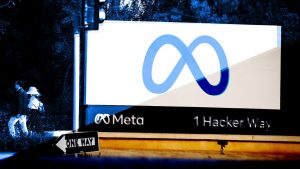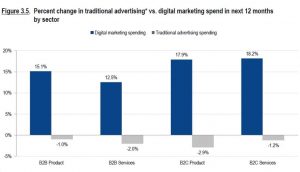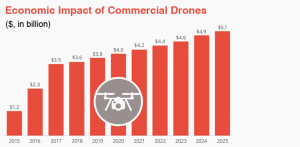Today is Cyber Monday, yet marketers have already shifted into highest gear to connect with desired audiences. The battle between businesses has begun, driving competition higher as they compete for a share of the shrinking consumer pie.
COVID restrictions and decreased spending power have made online sales more important than ever before. Massive consumer appetites for discounts are resulting in serious competition among retailers, driving prices down even before the holiday shopping even begins.
At Oxylabs, we’ve already noticed the rise in web scraping (also known as data extraction) across all e-commerce sectors. This is not a surprise as the trend towards ethical web scraping has been increasing for years now. Since more data means better insights, this is likely to continue – especially since awareness of the power of web scraping keeps increasing in the marketing community.
No longer exclusive to large companies with ample resources, web scraping is now accessible for e-commerce players of all sizes. This article will list some web strategies businesses can use this Cyber Monday (and beyond) to stand out from the competition and maximize sales.
A brief history of Cyber Monday
First, let’s put “Cyber Monday” into context so we have a clear idea moving forward of why it exists.
The term itself was created in 2005 when analysts at the US National Retail Federation (NRF) noticed a massive uptick in spending on the Monday after Black Friday.
Super-fast residential internet speeds weren’t so common back then. This led analysts to believe that the sales were coming from office workers using their work connection to take advantage of deals from the previous Friday. The team at the NRF-owned Shop.org website then coined the term “Cyber Monday” in the now-iconic (at least to marketers) press release titled, “Cyber Monday Quickly Becoming One of the Biggest Online Shopping Days of the Year”.
Given that internet speeds no longer account for this massive uptick, it may be safe to say that the entire weekend spanning Black Friday to Cyber Monday has been blended into a giant shopping holiday. Some retailers are stretching it even further by offering discounts days before Black Friday starts. What’s certain, however, is that Cyber Monday is when it all ends and that most retailers will continue offering discounts until then.
Start scraping now with these five strategies
Since competition is on a serious upswing, it pays to start web scraping activities as soon as possible. Here are some basic strategies to use throughout the holiday season:
1. Find the best products
Use web scraping to monitor products and determine which ones are most in demand. Simply stocking the most in-demand products, however, is not enough. Scrape products sections, reviews and comments for more insights on consumer experiences and preferences. Offer a more distinct product line to stand out from the competition instead of blending into the background with similar product lines that are already out there.
2. Discover top brands
Not all brands represent quality, but the ones that do have an edge over no-name and lesser-known products. Online shopping for some types of products can be “blind”. Stocking the most popular brands allows e-commerce stores to leverage their reputation for quality and build a loyal customer base.
3. Competition monitoring
It goes without saying that knowing what the competition is up to is essential. Web scraping allows a business to spy on all competitors, extracting publicly-available data like their product catalogs, inventory/stock information and shipping policies.
4. Use dynamic pricing
Ever check the price of a gadget on an online marketplace only to find that it has changed several times across different vendors? That’s dynamic pricing in action. Web scraping is used to calculate the most profit-maximizing price by tracking demand and supply factors.
5. Counterfeit protection
Does your store carry proprietary brands that are being counterfeited? This is a serious problem, according to the Organisation for Economic Co-operation and Development (OECD), that found that in 2016, clothing and footwear accounted for nearly 40% of all counterfeited goods. Web scraping can help owners of branded products scan search engines, marketplaces and predefined ecommerce websites known to list counterfeit products using the relevant keywords.
Once a list of all sites selling the counterfeited goods is compiled, DMCA (Digital Millennium Copyright Act) complaints can be filed along with requests to search engines to remove the websites from the index.
These tactics are just a sample of how public data can be unlocked for unparalleled uses and insights in the e-commerce space.
Cyber Monday by the numbers
Whether it leeches sales from Black Friday (or other shopping holidays), statistics confirm that Cyber Monday sales set records in 2019 with over $ 9 billion in sales in the United States alone. That’s bigger than Black Friday ($ 7.4 billion) and Amazon Prime Day ($ 4.2 billion) from 2018. Accordingly, Adobe Analytics reports that consumers spent over $ 3 billion using their smartphones, a 46% increase from 2018.
Top sellers included some “needs” and a whole lot of “wants” that included Frozen 2 toys, the Nintendo Switch, VR devices, Samsung TVs, LOL Surprise Dolls, Apple laptops, NERF products and video games. Online retailing by bricks and mortar stores grew substantially, evidenced by a 41% growth in BOPIS activity (buy online, pickup in-store) – signifying an increase in the sale of items located close to where consumers live.
Getting started with web scraping
Web scraping works through the use of scripts that crawl public sites to extract publicly-available data. While the process may sound simple, the procedure itself requires the use of tools that may include:
Datacenter and Residential Proxies
Proxies act as intermediaries between the host server and the party requesting the publicly-available data. Datacenter and residential proxies are the two main types, and either choice depends on the overall goals of the extraction and/or types of requests being made.
Next-Generation Proxies
Next-Gen Residential Proxies are the latest innovation in web scraping that addresses complex issues such as website structure. By leveraging artificial intelligence and machine learning technologies, this unique solution allows for data extraction on the most complicated product pages with guaranteed chances of success.
Ready-To-Use Tools
Not all businesses want to deal with the intricacies and complexities of the web scraping process, preferring instead to focus on analyzing and extracting the data. In those cases, ready-to-use solutions can empower businesses by allowing them to extract data automatically while focusing resources on deriving insights for the activation of marketing campaigns.
Unlock the power of data
Web scraping can be used in many ways that include dynamic pricing, product and brand monitoring, counterfeit protection and monitoring the competition. The availability of ready-to-use tools now empowers smaller businesses to compete with the bigger e-commerce players on a larger scale than ever before.
Whether it’s this Cyber Monday, the Golden Quarter, or beyond, businesses in today’s economic climate will need all the resources they can get to stay competitive. Data is the fuel in an e-commerce strategy and analysis via ethical web scraping can unlock its power.
Business & Finance Articles on Business 2 Community
(27)
Report Post





